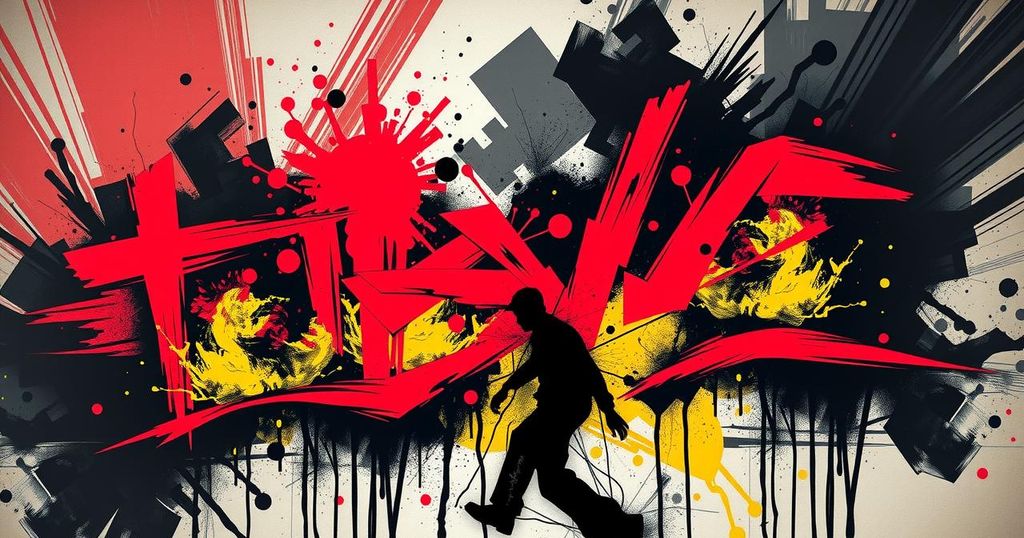Global news
ABDUL HAMID DBEIBAH, AFRICA, BACKED, CIVIL WAR, CONFLICT, GOVERNMENT OF, HANAN SALAH, HOUSE OF REPRESENTATIVES, HUMAN RIGHTS WATCH, HUMANITARIAN, HUMANITARIAN CRISIS, KHALIFA HAFTAR, LIBYA, MIDDLE EAST, NORTH AFRICA, OS, OSSAMA HAMMAD, SSA, TERRORISM, TOBRUK, TRIPOLI
Leila Ramsay
0 Comments
Between Chaos and Democracy: Libya at Crossroads Again
Tripoli witnesses ongoing unrest following armed conflict and governmental attempts to dismantle militias. Recent violence has resulted in multiple civilian casualties. The country remains divided between competing governments as calls for national elections grow amid political tensions. Experts express cautious hope for a UN-facilitated path toward unification and democratic processes in Libya.
Libya’s situation, while appearing calm this week, is still teetering on the edge of chaos, especially in Tripoli, the west’s capital. Earlier this month saw violence erupt between armed factions and pro-government troops after Prime Minister Abdul Hamid Dbeibah ordered the disbandment of armed militias, including the significant Stabilization Support Apparatus (SSA). In the aftermath, violence claimed the lives of eight civilians and revealed 58 additional bodies found in a hospital controlled by the SSA.
Hanan Salah, a prominent Libya researcher and associate director at Human Rights Watch, highlighted the grave implications of the recent violence, stating that it underscores the precarious nature of the current situation. “The reckless warfare documented in civilian areas shows blatant disregard for civilian safety,” Salah remarked, emphasizing the need for accountability in the actions of these armed groups.
Since 2014, Libya has found itself deeply divided, with the eastern and western regions operating under rival governments. The Tripoli-based Government of National Unity, led by Dbeibah, stands against the House of Representatives in the east, headed by Prime Minister Ossama Hammad, who is backed by former military leader Khalifa Haftar. In the east, Haftar has solidified control over various militias, ruling decisively, while Dbeibah has taken a more lenient approach towards the competing factions in the west.
The fighting in Tripoli did cease after a few days, under what remains an undisclosed agreement between the militia and Dbeibah’s government, which has since sparked protests demanding national elections and the resumption of a stalled constitutional drafting process initiated under UN auspices back in December 2021. Many demonstrators have also called for Dbeibah to resign, though he has remained silent on those demands, choosing to instead assert, “we will welcome all those who choose to stand with the state.” This sidestepping of public sentiment has many wondering if he is truly focused on consolidating power.
Tim Eaton, a senior research fellow at Chatham House, pointed out that the current geopolitical landscape in Libya remains precarious despite a seemingly frozen conflict since key actors have divided the spoils. He noted that the recent spike in violence was influenced by disputes over control of state institutions, such as the Libyan Post and Telecommunications Company, which wields significant influence in the telecommunications sector.
Eaton warned of a possible descent back into civil war, but he is cautious to stray from doom and gloom. “There is a real shot for the UN to capitalize on this moment to make some political progress,” he explained, suggesting that there have been political shifts following past conflicts. Instances from 2014 and 2020 highlighted how periods of violence led to new political searches and agreements.
The current crisis, according to former foreign minister Mohammed al-Dairi, could represent an opportunity for crafting a new government structure that could unify the country and address the ongoing division. Dairi spoke to the necessity of forming a coherent government as a first step toward stability and elections.
The United Nations Support Mission in Libya (UNSMIL) has released a report outlining potential paths forward which could lead to resolving Libya’s transitional phase. Among the options are holding simultaneous presidential and legislative elections, discussing parliamentary elections first, or charging through a permanent constitution adoption before voting.
As Salah pointed out, consensus among Libya’s parties remains vital. The urgency to tackle the human rights issues and political divisions means that any solutions will take time and collaborative efforts, even as the chance for free and fair elections feels out of reach. Nevertheless, the question persists: What alternatives do the factions truly have?
In summary, Libya’s delicate political landscape reflects a tension between armed factions and a government striving for control. With escalating violence resulting in civilian casualties, the pressing need for national unity and democratic reform comes to the forefront. Observers remain cautiously optimistic about a potential breakthrough, as the UN lays out paths toward elections amidst widespread public unrest. The question remains, however, if the competing Libyan factions can come together effectively to achieve lasting peace and governance.
Original Source: www.dw.com




Post Comment